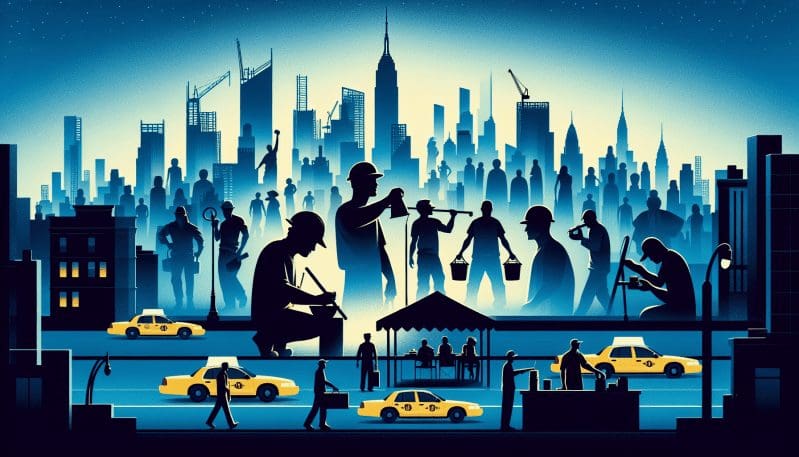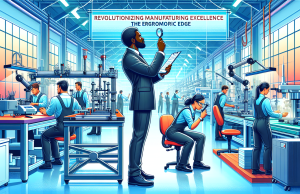In the bustling streets of New York, a parallel economy thrives – one powered by the blood, sweat, and aspirations of an invisible labor force: undocumented workers. These individuals, often unnoticed or deliberately ignored, are the silent gears that keep this city’s engine running smoothly. Their impact on New York’s economy is both profound and paradoxical, being ubiquitous across sectors yet remaining under the radar of mainstream acknowledgment.
From the towering skyscrapers carving out the city’s iconic skyline to the never-ending hum of restaurants and hotels, undocumented workers are omnipresent. In construction, they wield hammers and pour concrete, shaping the very infrastructure we take for granted. In the hospitality sector, they clean our rooms and cook the exotic meals that make New York’s cuisine world-renowned. Their labor spans across various industries – agriculture, domestic work, street vending, and more – forming an essential part of the city’s economic tapestry.
However, these workers, pivotal to the city’s success, find themselves on shaky ground. Their undocumented status binds them in a liminal space where legal challenges and limited rights are constant threats. They often work in conditions fraught with peril, earn wages well below the city’s already high living standard, and face the persistent fear of job insecurity and deportation. This precarity is further compounded by a lack of access to healthcare, legal protection, and the benefits that lawful residents often take for granted.
The historical echoes of migrant labor in New York are profound. The city has long been a beacon for those seeking opportunity, and its economy has historically been bolstered by the arrival of immigrants. By the turn of the 20th century, waves of European migrants filled factory lines and tenement houses, their situation not unlike that of today’s undocumented workers: exploited labor with limited rights. Throughout the decades, these patterns have persisted, albeit with new faces and from different places.
The vulnerabilities faced by undocumented workers are not unsolvable enigmas but are issues needing comprehensive policy measures. Regularizing the status of undocumented workers would not only stabilize their lives but would also benefit the city’s economy by ensuring all workers are protected and can contribute more significantly. Policies aimed at providing legal assistance, enforcing labor laws irrespective of immigration status, and offering pathways to citizenship are critical steps forward. Additionally, promoting awareness and integrating these workers into the broader economic narrative would highlight their indispensable role.
The undocumented labor force in New York is the heartbeat of its urban life. It’s time we recognize these workers for what they are – essential pillars of our economy – and afford them the dignity, rights, and protections they deserve. By doing so, we don’t just strengthen their lives; we fortify the very foundation of our city’s prosperity. Only then can we truly say that New York exemplifies the ideals upon which it was built – opportunity, equality, and a melting pot of diverse, hardworking dreamers shaping a collective future.




























